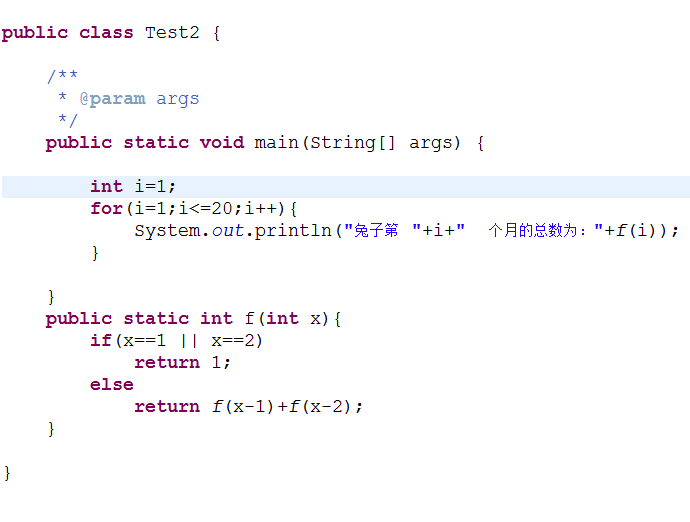Home >Java >javaTutorial >Classic examples of Java recursive algorithms (classic rabbit problem)
Classic examples of Java recursive algorithms (classic rabbit problem)
- 高洛峰Original
- 2017-01-17 13:33:152358browse
Title: Classical question: A pair of rabbits are born every month starting from 3 months old. After the baby rabbit grows to the third month, another pair of rabbits are born every month. If the rabbits do not die, ask the rabbits of each month. What is the total number?
Analysis: First of all, we need to understand that the meaning of the question refers to the total number of rabbits per month; assuming that rabbits are divided into three types: small, medium and large, rabbits will grow every month from three months after birth. A pair of rabbits will be born.
Then we assume that the rabbits in the first month are small rabbits, the rabbits in the second month are medium rabbits, and the rabbits after the third month are big rabbits. Then there are 1, 0, 0, the second month is 0, 1, 0 respectively, the third month is 1, 0, 1 respectively, the fourth month is 1, 1, 1 respectively, and the third month is 1, 1, 1 respectively. The five months are 2, 1, 2 respectively, the sixth month are 3, 2, 3 respectively, the seventh month are 5, 3, 5 respectively...
The total number of rabbits are: 1, 1 , 2, 3, 5, 8, 13...
So we came up with a rule. From the third month onwards, the total number of rabbits in the following months is equal to the sum of the total number of rabbits in the previous two months, which is Fibonacci Sequence.
Java code:
 A very classic example of a recursive algorithm.
A very classic example of a recursive algorithm.
The above is the entire content of this article. I hope that the content of this article can bring some help to everyone's study or work. I also hope to support the PHP Chinese website!
For more classic examples of Java recursive algorithms (classic rabbit problem), please pay attention to the PHP Chinese website!

